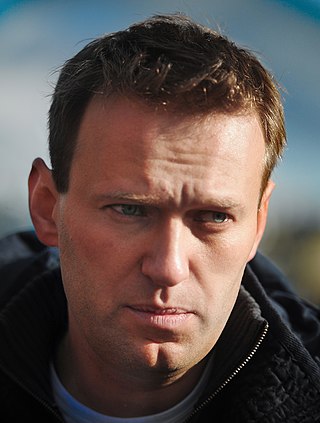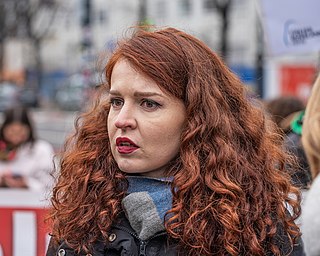Related Research Articles

The European Convention on Human Rights is an international convention to protect human rights and political freedoms in Europe. Drafted in 1950 by the then newly formed Council of Europe, the convention entered into force on 3 September 1953. All Council of Europe member states are party to the convention and new members are expected to ratify the convention at the earliest opportunity.

The European Court of Human Rights, also known as the Strasbourg Court, is an international court of the Council of Europe which interprets the European Convention on Human Rights. The court hears applications alleging that a contracting state has breached one or more of the human rights enumerated in the convention or its optional protocols to which a member state is a party. The European Convention on Human Rights is also referred to by the initials "ECHR". The court is based in Strasbourg, France.

The Human Rights Act 1998 is an Act of Parliament of the United Kingdom which received royal assent on 9 November 1998, and came into force on 2 October 2000. Its aim was to incorporate into UK law the rights contained in the European Convention on Human Rights. The Act makes a remedy for breach of a Convention right available in UK courts, without the need to go to the European Court of Human Rights (ECHR) in Strasbourg.

Human rights in the United Kingdom concern the fundamental rights in law of every person in the United Kingdom. An integral part of the UK constitution, human rights derive from common law, from statutes such as Magna Carta, the Bill of Rights 1689 and the Human Rights Act 1998, from membership of the Council of Europe, and from international law.

Human rights protection is enshrined in the Basic Law and its Bill of Rights Ordinance (Cap.383). By virtue of the Bill of Rights Ordinance and Basic Law Article 39, the International Covenant on Civil and Political Rights (ICCPR) is put into effect in Hong Kong. Any local legislation that is inconsistent with the Basic Law can be set aside by the courts. This does not apply to national legislation that applies to Hong Kong, such as the National Security Law, even if it is inconsistent with the Bills of Rights Ordinance, ICCPR, or the Basic Law.
Freedom of assembly in Russia is granted by Article 31 of the Constitution adopted in 1993, where it states that citizens of the Russian Federation shall have the right to gather peacefully, without weapons, and to hold meetings, rallies, demonstrations, marches and pickets. In practice, the right to freedom of assembly is restricted by Russian authorities. According to a Russian law introduced in 2014, a fine or detention of up to 15 days may be given for holding a demonstration without the permission of authorities and prison sentences of up to five years may be given for three breaches. Single-person pickets have resulted in fines and a three-year prison sentence.
Soering v United Kingdom 161 Eur. Ct. H.R. (1989) is a landmark judgment of the European Court of Human Rights (ECtHR) which established that extradition of a German national to the United States to face charges of capital murder and the potential exposure of said citizen to the death row phenomenon violated Article 3 of the European Convention on Human Rights (ECHR) guaranteeing the right against inhuman and degrading treatment. In addition to the precedent established by the judgment, the judgment specifically resulted in the United States and the State of Virginia committing to not seeking the death penalty against the German national involved in the case, and he was eventually extradited to the United States.
Article 2 of the European Convention on Human Rights protects the right to life. The article contains a limited exception for the cases of lawful executions and sets out strictly controlled circumstances in which the deprivation of life may be justified. The exemption for the case of lawful executions has been subsequently further restricted by Protocols 6 and 13, for those parties who are also parties to those protocols.
Article 6 of the European Convention on Human Rights is a provision of the European Convention which protects the right to a fair trial. In criminal law cases and cases to determine civil rights it protects the right to a public hearing before an independent and impartial tribunal within reasonable time, the presumption of innocence, right to silence and other minimum rights for those charged in a criminal case.
S and Marper v United Kingdom [2008] ECHR 1581 is a case decided by the European Court of Human Rights which held that holding DNA samples of individuals arrested but who are later acquitted or have the charges against them dropped is a violation of the right to privacy under the European Convention on Human Rights.

Alexei Anatolievich Navalny is a Russian opposition leader, lawyer, and anti-corruption activist. He has organised anti-government demonstrations and run for office to advocate reforms against corruption in Russia, and against president Vladimir Putin and his government, who avoids referring directly to Navalny by name. Navalny was a Russian Opposition Coordination Council member. He is the leader of the Russia of the Future party and founder of the Anti-Corruption Foundation (FBK). He is recognised by Amnesty International as a prisoner of conscience, and was awarded the Sakharov Prize for his work on human rights.

Alekseyev v. Russia is a case before the European Court of Human Rights concerning the prohibition of the 2006, 2007 and 2008 Moscow Pride gay rights marches in Russia's capital. The case was brought by Russian LGBT activist Nikolay Alexeyev, organiser of the marches, who claimed the banning of the marches had violated Article 11 of the European Convention on Human Rights. He claimed furthermore that he had not received an effective remedy under Article 13 against the violation of Article 11, and that he had been discriminated against by the authorities in Moscow under Article 14 in their consideration of his applications to hold the marches.
Article 18 of the European Convention on Human Rights (ECHR) states:
The restrictions permitted under this Convention to the said rights and freedoms shall not be applied for any purpose other than those for which they have been prescribed.

Beghal v DPP was a 2015 judgment of the Supreme Court of the United Kingdom concerning powers of the police in England and Wales.

Ildar Ildusovich Dadin is a Russian activist, accused of violent acts and derailing during demonstrations and hence constantly receiving increased attention from the authority. He is the first person to spend 1 year in a penal colony solely for his activity.
The Russian opposition figure and anti-corruption activist Alexei Navalny announced his intention to run for President of Russia in the 2018 election on 13 December 2016. The primary themes of his campaign have been focusing on domestic issues, including combating corruption in Russia and improving the economy. Commentators have noted that Navalny's campaign is unprecedented in modern Russia as politicians usually do not start campaigning until a few months before the election.
Eiseman-Renyard and others v. the United Kingdom is a 2019 European Court of Human Rights case between Hannah Eiseman-Renyard and seven other applicants against the United Kingdom for an alleged breach of Article 5 of the European Convention on Human Rights. The case revolved around the Metropolitan Police arresting the claimants prior to the wedding of Prince William and Catherine Middleton based on intelligence that the group intended to disrupt the wedding. The claimants argued that they had been arrested on no valid preventive basis. The Court dismissed the claim as inadmissible due to ill-founded beliefs.

Kira Aleksandrovna Yarmysh is a Russian public figure and writer. She is best known as the press secretary and assistant of Russian opposition leader Alexei Navalny and the author of the 2020 novel "Incredible Incidents in Women's Cell No. 3".
Bayev and Others v. Russia was a case brought to the European Court of Human Rights by three Russian activists—Nikolay Bayev, Aleksei Aleksandrovich Kiselev, and Nikolay Alekseyev—alleging that the Russian gay propaganda law infringed on their freedom of expression guaranteed by Article 10 of the European Convention on Human Rights. On 20 June 2017, the court ruled that the applicants' freedom of expression had been compromised. The only dissent was from Dmitry Dedov, the judge elected with respect to Russia.
O'Halloran and Francis v. United Kingdom was a 2007 European Court of Human Rights case. The case revolved around a challenge to a requirement in the United Kingdom's Road Traffic Act 1988 that owners of a speeding vehicle provide police with the name of the driver. The plaintiffs, two British citizens, argued that the requirement was a violation of Article 6 of the European Convention on Human Rights, under which there exists an implied right to remain silent. In a departure from previous rulings on the issue, the court ruled in a 15–2 majority that the Road Traffic Act requirement was not unreasonable and that there was therefore no Human Rights violation.
References
- ↑ Nussberger, Angelika (14 May 2020). "The European Court of Human Rights at Sixty – Challenges and Perspectives". The European Convention on Human Rights Law Review. 1 (1): 11–13. doi:10.1163/26663236-00101006. ISSN 2666-3228.
- ↑ Heri, Corina (25 April 2019). "Navalnyy v. Russia (Eur. Ct. H.R.)". International Legal Materials. 58 (2): 315–370. doi:10.1017/ilm.2019.15. ISSN 0020-7829.